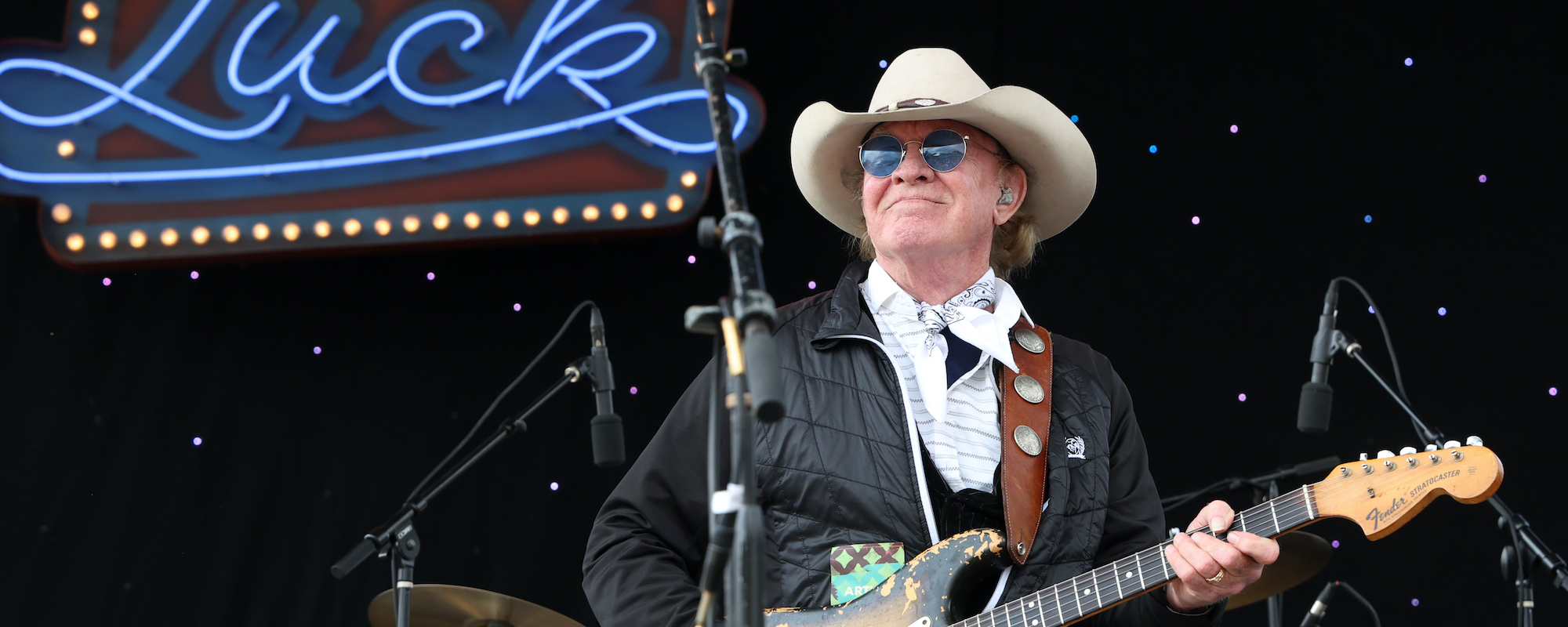Country music has never been without its occasional controversy. These four country songs were once considered quite controversial when they were first released. Whether they tackled taboo subjects or were considered offensive in the 20th century, these four songs got much more positive attention in the years since their respective releases.
Videos by American Songwriter
1. “The Pill” by Loretta Lynn
This Loretta Lynn classic was released in 1975. “The Pill” is a now-loved song about birth control and female empowerment. But in 1975, such lyrics caused a bit of an uproar, especially in more conservative country music circles. Nearly 60 different radio stations across the country banned the song, but it still made it to no. 5 on the Billboard Hot Country Songs chart.
2. “The Thunder Rolls” by Garth Brooks
When it comes to the most controversial country songs of the 20th century, it’s almost hard to believe that “The Thunder Rolls” by Garth Brooks could be considered as controversial as it was.
Released in 1991, the song and its music video depicted a man who returned home to his wife after cheating on her. There are allusions to spousal abuse, as well. The wife, angry and sick of being mistreated, pulls out a gun and retaliates. The video was banned by several networks, but that didn’t stop the song from hitting the top of the Billboard Country charts.
[Buy Tickets To See Garth Brooks Live In Concert In 2024]
3. “Stand By Your Man” by Tammy Wynette
This 1968 song was written by Tammy Wynette and Billy Sherrill. “Stand By Your Man” quickly became Wynette’s most well-known song and allegedly only took 20 minutes to write. The lyrics were the subject of much discussion and controversy.
On one hand, a number of listeners thought the song was a cheeky, satirical swipe at men. Others thought the song was quite literal and anti-feminist. Regardless of how listeners felt about it, the song was added to the Grammy Hall of Fame around 1999.
4. “It Wasn’t God Who Made Honky Tonk Angels” by Kitty Wells
This 1952 song was famously sung by Kittie Wells as a response to Hank Thompson’s song “Wild Side Of Life”. Thompson’s track, released just a few months prior, depicted a wife who abandons her husband to live a more “wild” life. The song was considered a little misogynistic, and Wells responded with a different notion: “From the start, most every heart that’s ever broken / Was because there always was a man to blame.”
NBC famously banned Wells’ songs from the radio for being too “suggestive” and the Grand Ole Opry kept Wells from performing the song. Audiences, alternatively, loved the track.
Photo by Michael Ochs Archives
When you purchase through links on our site, we may earn an affiliate commission.













Leave a Reply
Only members can comment. Become a member. Already a member? Log in.